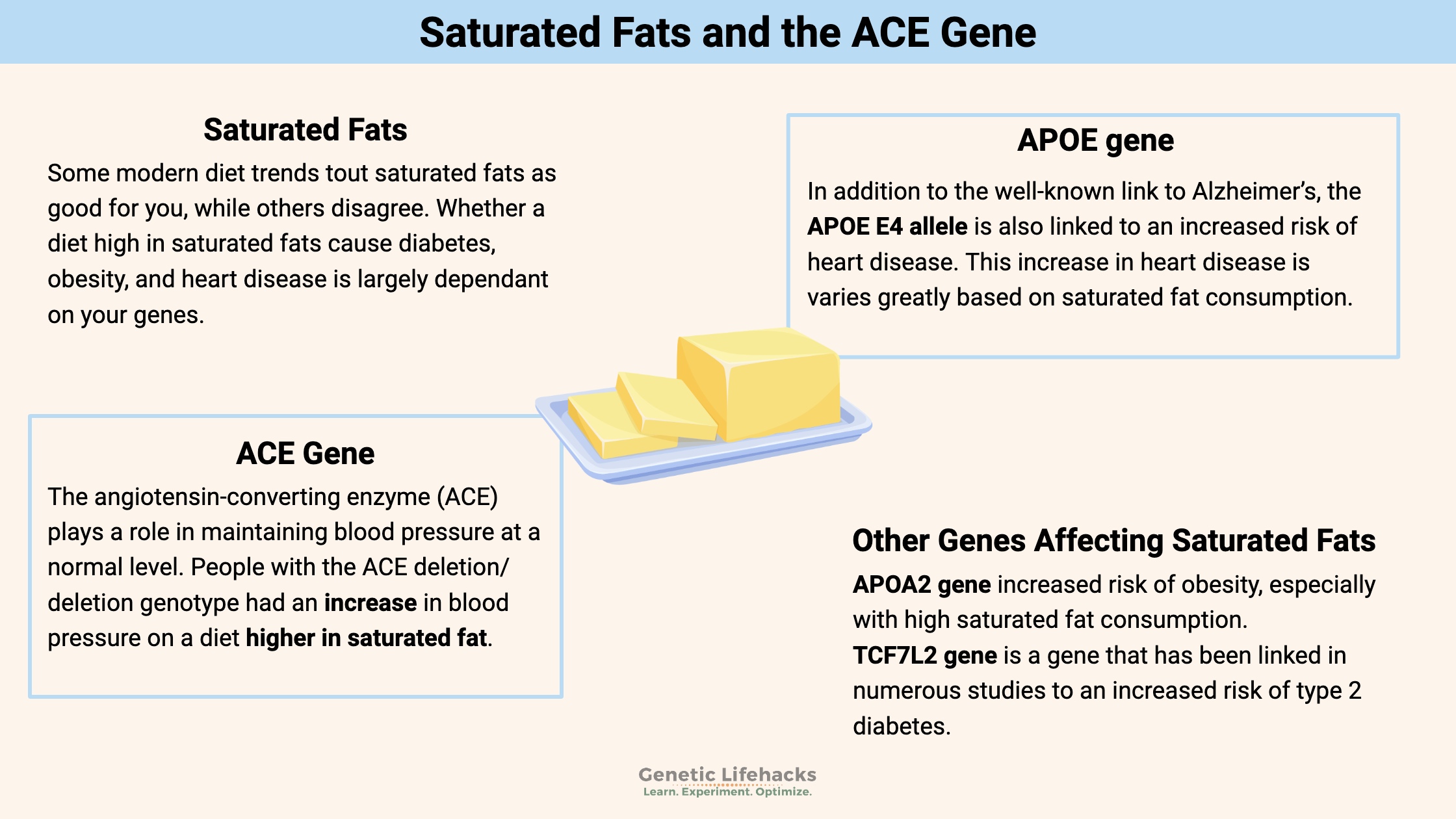There has been a decades-long debate about which type of fat is best: saturated fat vs polyunsaturated fat.
Those in the paleo and ketogenic world are quick to tout the benefits of saturated fat, while others, such as the American Heart Association, promote polyunsaturated fats[ref]. And most people remain just a bit confused about the arguments on either side…
<b>Members</b> will see their genotype report below and the solutions in the Lifehacks section. <a href=”https://www.geneticlifehacks.com/membership/”>Consider joining today</a>.
Is Saturated Fat Good for You?
It may depend on your genes as to which answer is right for you.
There have been several studies that investigated the effects of a high saturated fat diet on cardiovascular disease – stratified by genetic variants.
Keep in mind that most of these studies are looking at higher saturated fat consumption along with a standard diet (some carbs, some protein, higher fat). The study results may or may not hold true for people on a ketogenic diet.
Let’s take a look at the science so that you can figure out what is right for your genes.
Saturated Fats Genotype Report
Access this content:
An active subscription is required to access this content.
Lifehacks:
We are all different in our dietary needs. If you have the variants listed above, you may want to decrease the amount of saturated fat in your diet.
Testing specific markers, such as cholesterol levels, could help you determine if decreasing saturated fat is worthwhile for you.
If you carry the ACE deletion/deletion variant:
Access this content:
An active subscription is required to access this content.
Related Articles and Topics:
Heart disease, cancer, diabetes: The BMAL1 gene ties together the “Big 3”
When it comes to chronic diseases, the “Big 3” are heart disease, cancer, and type 2 diabetes. Heart disease is the number one killer in the US, with cancer a close second. Diabetes numbers are increasing at an alarming rate.
LDL Cholesterol Genes
Heart disease is the leading cause of death in the US and around the world, and high LDL-cholesterol levels have been linked in many studies to increased heart disease. Standard medical advice on ideal cholesterol levels and cardiovascular disease are often confusing, ever-changing, and sometimes downright contradictory.
Debbie Moon is a biologist, engineer, author, and the founder of Genetic Lifehacks where she has helped thousands of members understand how to apply genetics to their diet, lifestyle, and health decisions. With more than 10 years of experience translating complex genetic research into practical health strategies, Debbie holds a BS in engineering from Colorado School of Mines and an MSc in biological sciences from Clemson University. She combines an engineering mindset with a biological systems approach to explain how genetic differences impact your optimal health.

